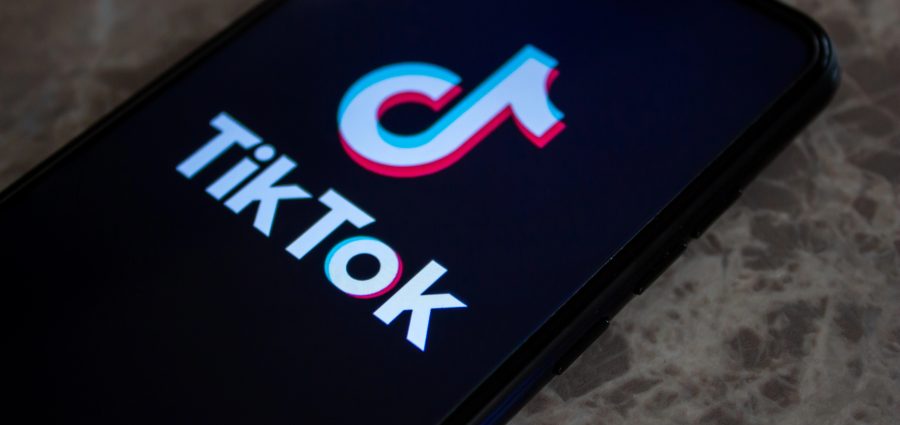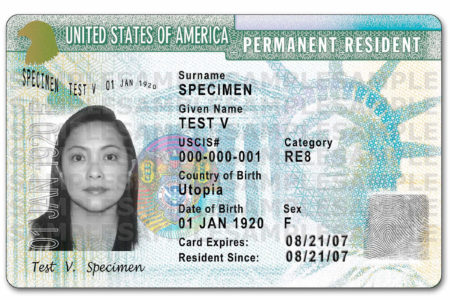The recent framework agreement between the United States and China on TikTok ownership represents a pivotal moment in the ongoing saga of this popular social media platform. Announced on September 15, 2025, following high-level trade talks in Madrid, Spain, the deal aims to transfer control of TikTok from its Chinese parent company, ByteDance, to U.S.-based entities. This development comes just ahead of a looming September 17 deadline that could have led to the app’s ban in the United States, citing national security concerns. While the agreement has been hailed by some as a breakthrough in U.S.-China relations, it has ignited fierce debates about the potential for continued Chinese influence, data privacy, and the integrity of American innovation.
TikTok, with its nearly two billion global users and 180 million in the United States alone, has become a cultural phenomenon, particularly among younger generations. However, its ownership by ByteDance has long raised alarms about the platform’s vulnerability to Beijing’s oversight. Chinese laws require companies to cooperate with government intelligence efforts, potentially allowing access to sensitive user data. The framework deal, set to be finalized in a call between President Donald Trump and Chinese President Xi Jinping on September 19, 2025, promises to address these issues by shifting ownership to American-controlled parties. Yet, details remain sparse, leaving many to question whether this truly safeguards American interests or merely postpones deeper problems.
This agreement underscores the delicate balance between fostering free markets and protecting national sovereignty. In an era where digital platforms shape public opinion and economic opportunities, ensuring that foreign adversaries cannot manipulate content or harvest data is paramount. The deal’s emergence from broader trade negotiations highlights how economic leverage can intersect with security imperatives, reminding Americans of the need for vigilant oversight to preserve individual liberties and competitive edges.
The Framework Agreement: Key Details and Timeline
The announcement of the framework deal followed two days of intensive talks in Madrid between U.S. Treasury Secretary Scott Bessent, U.S. Trade Representative Jamieson Greer, and Chinese Vice Premier He Lifeng. Bessent described the agreement as one between “two private parties,” with commercial terms already settled, though specifics on ownership structure were not disclosed. The deal would allow TikTok to continue operating in the United States, averting a potential shutdown that has been delayed multiple times since Congress passed legislation in 2024 mandating divestiture or a ban.
Under the proposed structure, ByteDance would divest its controlling stake, potentially involving U.S. firms like Oracle, which has hosted TikTok’s American data since 2020. President Trump has suggested a 50-50 joint venture model in past discussions, but the current framework emphasizes full U.S. control to comply with national security laws. The September 17 deadline, originally set for divestiture, may be extended by 90 days to facilitate the transition, with Trump and Xi expected to approve the final terms during their upcoming call.
Chinese negotiators, including Wang Jingtao from the Central Cyberspace Affairs Commission, confirmed a “basic consensus” on intellectual property rights, such as TikTok’s algorithm—a key sticking point. Beijing has stressed that no deal will compromise its firms’ interests, indicating that while ownership may shift, certain technological elements could remain tied to Chinese oversight. This aspect of the agreement has drawn scrutiny, as it raises questions about whether the platform can truly be decoupled from Beijing’s influence.
The talks also touched on broader trade issues, including tariffs and export controls, positioning the TikTok deal as part of a larger effort to stabilize U.S.-China economic relations. With U.S. exports to China declining and Beijing expanding trade elsewhere, this framework could signal a thaw, but only if it prioritizes American security and economic independence.
National Security Concerns: Data Privacy and Beijing’s Reach
At the heart of the TikTok controversy lies profound national security risks. Critics, including former FBI Director Christopher Wray, have warned that Chinese national security laws compel ByteDance to surrender user data upon request, potentially enabling Beijing to spy on Americans or manipulate content to influence public opinion. The Department of Justice has documented instances where TikTok gathered sensitive information on U.S. users related to topics like gun control, religion, and abortion through its internal communication tools.
Even with the ownership shift, concerns persist about residual Chinese influence. The algorithm, which powers TikTok’s addictive content recommendations, is a proprietary technology developed in China. Transferring it to U.S. control without full transparency could leave backdoors for data access or content censorship. Experts like Jim Secreto, a former national security official, note that Beijing ultimately controls such transfers, making the deal’s effectiveness dependent on verifiable safeguards.
For 180 million American users, predominantly young people, the stakes are high. TikTok’s role in shaping cultural narratives and disseminating information means any foreign interference could undermine free expression and democratic discourse. Protecting user data aligns with core principles of privacy and individual rights, ensuring that personal information remains shielded from authoritarian regimes.
This deal tests the resolve to enforce laws like the Protecting Americans from Foreign Adversary Controlled Applications Act, which mandates divestiture to mitigate these threats. Failure to fully address them could embolden other foreign entities to infiltrate U.S. digital spaces.
Impact on American Users and Innovation
TikTok has revolutionized social media, offering creators economic opportunities through viral content and e-commerce integrations. A ban would disrupt livelihoods for millions, including small businesses relying on the platform for marketing. The framework deal preserves access, potentially benefiting users by maintaining the app’s features while transitioning to U.S. oversight.
However, the shift raises questions about innovation. With ByteDance as one of China’s largest AI firms, the algorithm’s transfer could limit technological advancements if not handled transparently. American companies like Oracle stand to gain, but ensuring fair competition without foreign subsidies is crucial for fostering genuine market-driven progress.
Young users, who form TikTok’s core audience, may welcome continuity, but parents and educators worry about exposure to unfiltered content that could promote harmful ideologies. Balancing accessibility with safeguards promotes responsible use, aligning with values of personal responsibility and family protection.
Political Reactions: Support, Criticism, and Bipartisan Scrutiny
President Trump has positioned the deal as a win for American youth, stating it would make “young people in our Country very happy.” His administration’s multiple deadline extensions reflect a pragmatic approach to negotiation, leveraging trade talks to secure concessions. Treasury Secretary Bessent emphasized fairness for Chinese interests while respecting U.S. security, suggesting a balanced diplomacy.
Criticism has been swift, particularly from those viewing the deal as a concession. On platforms like X, users decry it as a “complete surrender,” arguing that any lingering Chinese ties violate national security laws. Bipartisan lawmakers, including those from the House Oversight Committee, demand full disclosure to prevent elite compromises. Senator Marco Rubio has called for rigorous audits to ensure no backdoors remain, echoing concerns about foreign interference in free markets.
Public sentiment on social media reflects division, with posts from accounts like @Reuters and @AFP garnering thousands of views debating the deal’s merits. Supporters see it as a step toward de-risking U.S. tech from China, while detractors fear it weakens resolve against authoritarian influence.
Broader Implications for US-China Relations and Trade
This framework emerges amid escalating trade tensions, with U.S. tariffs on Chinese goods and Beijing’s diversification of export markets. The deal could ease pressures ahead of a November tariff deadline, potentially boosting bilateral trade while addressing security gaps. However, core disputes over intellectual property and market access persist, making this a tentative step rather than a resolution.
From a perspective valuing limited government and free enterprise, the agreement highlights the importance of strategic negotiations to protect American sovereignty. It reinforces the need for policies that prioritize domestic innovation over foreign dependencies, ensuring economic vitality without compromising security.
The involvement of trade talks in resolving tech disputes illustrates how interconnected global economies demand multifaceted approaches. Success here could set precedents for handling other Chinese-owned apps, promoting a level playing field for U.S. firms.
Safeguards and Future Reforms: Ensuring True Independence
To make the deal robust, independent audits of TikTok’s data systems and algorithms are essential. Legislation requiring ongoing compliance monitoring would prevent future vulnerabilities, aligning with principles of accountability and transparency. Enhancing digital literacy programs can empower users to navigate platforms responsibly, mitigating risks of manipulation.
Policymakers should consider broader reforms, such as incentives for American tech development to reduce reliance on foreign platforms. This fosters self-reliance, a cornerstone of economic freedom and national resilience.
Conclusion: Navigating the Path to Secure Digital Frontiers
The US-China TikTok framework deal offers a pathway to resolve a contentious issue, but its success hinges on rigorous implementation. By shifting ownership to U.S. control and addressing security flaws, it can protect 180 million users while preserving the platform’s innovative spirit. Yet, vigilance against Beijing’s influence remains crucial to uphold free markets and individual rights.
As Trump and Xi finalize terms, the nation must demand transparency to ensure the deal serves American interests. This moment reaffirms the enduring value of principled diplomacy in safeguarding liberty and prosperity against external threats. Through steadfast commitment to these ideals, the United States can navigate the complexities of the digital age with confidence.
Featured image credit: DepositPhotos.com








